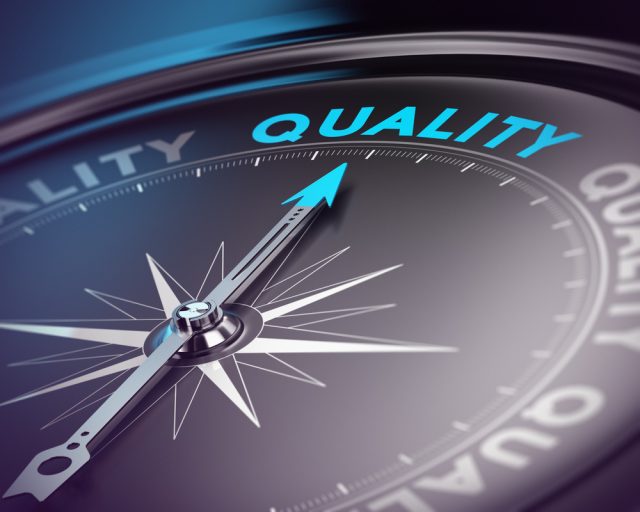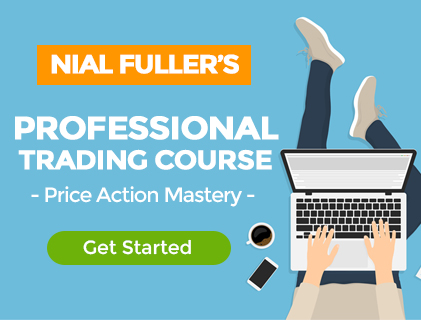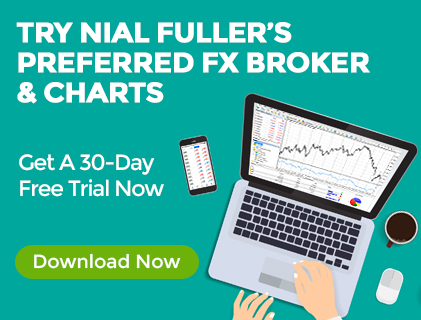 Most traders simply want to trade. They are afraid to miss the next big move, forgetting that the market will exist tomorrow, the day after tomorrow, 10, 20, 50 years from now. Everything repeats itself in the market. That means there is another opportunity around the corner. Don’t worry.
Most traders simply want to trade. They are afraid to miss the next big move, forgetting that the market will exist tomorrow, the day after tomorrow, 10, 20, 50 years from now. Everything repeats itself in the market. That means there is another opportunity around the corner. Don’t worry.
Today is not the last day you have to trade, but still many people do and think so! Overtrading is the number one reason most traders are unsuccessful. It’s a “cancer” for your trading account and your dreams.
What is “overtrading”?
If you are trading almost all the time, you are overtrading. If you’re obsessed with markets and trading, you’re either overtrading or trying to overtrade. If you’re doing multiple trades at once, you’re probably overtrading unless you’ve carefully split your overall 1R risk across all your trades.
There are many other examples of overtrading, but the basic fact of the matter is that you know if you’re overtrading because you can’t sleep at night and your money is bleeding.
Personally, I only trade about 1-6 times a month and I choose my trades very carefully, filtering out signals I don’t like.
Here are the effects of overtrading on your trading results and account:
Too many trades thin the edges
The more trades you make, the less trading advantage you get. A trading edge increases your chances of success, but the simple fact is that there are only a very large number of high-probability trading signals every week, month, year, whatever the edge.
So, when you start to move away from your trading dominance and enter into low-quality trades that don’t meet your standards, your chances of success start to decline. You’re basically diluting your trading edge to the point where it ends up being random or less.
- Market noise and quality trading – When there is market noise and there is indeed a high probability price event, you should know the difference. I wrote an article titled How to Trade Sideways Markets. We encourage you to read more and review the example charts. The point here is that if you don’t know the difference between market noise and real price action signals worth betting your money on, you’ll naturally end up trading just noise rather than real signals, It further dilutes any advantage you may have. The conclusion is clear. Before you risk your hard-earned money in the market, know exactly what your trading edge looks like and how to trade it to avoid accidentally overtrading. please.
Spreads and commissions eat up your profits
How do you think casinos make so much money? Frequency. High frequency of games means their advantage will play out again and again. House always wins. In trading they always win because brokers are home and not only do many trade but probably 90% of them trade too much. Your only true “advantage” as a home is simply trading less!
Consider this: Every 100 trades will return at least 100-150 pips equivalent to the spread or commission. So the more transactions you make, the more it will cost you due to account “churn”.
You should avoid trading like a casino player, think it through, filter, and choose your trades carefully. In a nutshell, to keep your edge, you need to keep the market and your broker out of the spread all the time.
it’s not good to do too much
Looking at most endeavors involving trading, in many cases, doing too much, thinking too much, or worrying too much about XYZ endeavors has a direct and negative impact on how well you can do it. There is a relationship.
for example: Drinking too much Coke, eating too many McDonald’s, exercising too much, and even drinking too much water can all be bad for you. Worrying too much about your significant other will push them away because it makes them unattractive and “necessary.” One thing is true – too much hurts you. can kill or kill and too many trades will definitely kill your trading account!
- Your Brain Is Wired To Be Addicted…
Drugs, sugar, video games, gambling, blue light from smartphones, trading, what do they all have in common? They can all be extremely dangerously addictive.
Our brains are wired and designed to get addicted to things. This is an evolutionary trait that served us as hunter-gatherers thousands of years ago, but in modern societies with all their unhealthy vices and temptations, it tends to work the opposite. even kill.
Our brain works with reward systems. When something makes you feel good, you get a little “shot” of “feel-good chemicals” such as dopamine. Thus, we become obsessed with whatever brought us the dopamine rush, whether it was bad or good for us. , you can get carried away with that feeling even though you know the consequences will be disastrous. Especially dangerous. On the contrary, exercise also releases “feel good” chemicals that can make you addicted to that feeling, making you more likely to keep exercising.
Knowing this basic information about how the brain works, you can train yourself to be very careful not to get carried away with negative thoughts and processes, and to get carried away with positive thoughts and processes. It is clear that you need to
When it comes to trading, you have a laptop in front of you with flashing colors and prices going up and down that you can use to initiate trades at the touch of a button. If you do it and hit a few winners, your brain will say, “Feel pretty good, try again,” and if you’re not careful, your trading addiction will set in.
If you don’t create a trading plan that maps out your trading advantage and how you will behave in the market, you will get addicted to the feeling of “chasing” the winners and naturally overtrading. If you don’t plan your trading objectively at the beginning of your career, you’ll end up losing a lot of money due to your trading addiction. and.
Overtrading cure
I have been trading the market for about 18 years and have taught traders more than half of it. I have definitely learned all the lessons to be learned in the market many times over. So the plan I present below comes out of my experience, and it is my opinion that following it will “cure” the “cancer” of over-trading that is probably destroying the trade. Account now.
- Set up up to 10-12 deals per month. Ideally less.
You should incorporate some strict rules into your trading plan. Think about it like this: Some trading strategies are rigid, and within that rigid structure there is some flexibility in terms of how much risk to take, how to enter, and where to place your stop loss. But when it comes to trading, when it comes to frequency, you should say something like “I’m not going to do more than 10 trades a month” or 5 trades. Ideally, you should not trade more than 5-7 times per month. If you trade more than 10 times a month, you are probably overtrading.
- Wait for the setup that matches your plan and apply filters…
By “filtering” we mean a set of criteria we use to see if a trade is worth doing. I like to use TLS filters to check trades with multiple confluences, at least 2 out of 3: trends, levels, signals, etc.
Your goal is to trade like a sniper and wait patiently like a crocodile hunting its prey. You are not going after “everything” target or prey that is tough and hard to “kill”. Instead, you want to improve your odds of success by storing your “ammo” (trading capital) in weaker/prey/easier to earn trades. The amount of money to risk is very limited, just as the amount of money is very large. Use it wisely or your account will run out or be blown away.
- Set approach and forget…
One of the big reasons traders overtrade is that they don’t give them enough time to execute their trades, and they jump right into another one. Remember good deals take time. If you want to catch big market moves, you have to wait patiently. This also means you don’t trade a lot. This is one of the reasons why you should set up a deal and forget about it. Doing so will not only increase your chances of winning big, but it will also prevent you from “chasing” a trade with too many trades.
- Restrict to markets that have technical evidence and are clearly moving in one direction
Traders often make the mistake of trading in choppy market conditions. This causes you to enter a trade, quickly start getting disadvantaged, and want to enter another trade. Dopamine tracking is ongoing at that point. Jumping from trade to trade is very risky. If you stick to a market that is clearly trending and moving aggressively in one direction, you are much less likely to overtrade.
lastly…
One of the hard truths of trading is that the market doesn’t have a ton of high-probability price events every week, month, or year. So, it’s only natural that the more you trade, the less your trading advantage. Despite these facts, most traders continue to trade frequently each week and end up losing money.
My strategy is built on a low-frequency trading approach, so basically I don’t miss the most obvious trade setups and trade as often as possible. Clearly, there is some learning and skill required to know what constitutes the “best” and “obvious trade setups”. You can’t wake up one morning and magically know what to look for. With the help of my professional trading courses and the set-and-forget approach I teach, you’ll begin to learn what “quality” price action events look like and learn how to filter out the low quality ones. increase. My end of day trading approach is low frequency in nature for a reason. The result is a self-fulfilling feature that works to systematically prevent overtrading that naturally increases your chances of long-term trading success. Which one do we all want?
Leave a comment below with your thoughts on this lesson…
If you have any questions, please contact us here.




